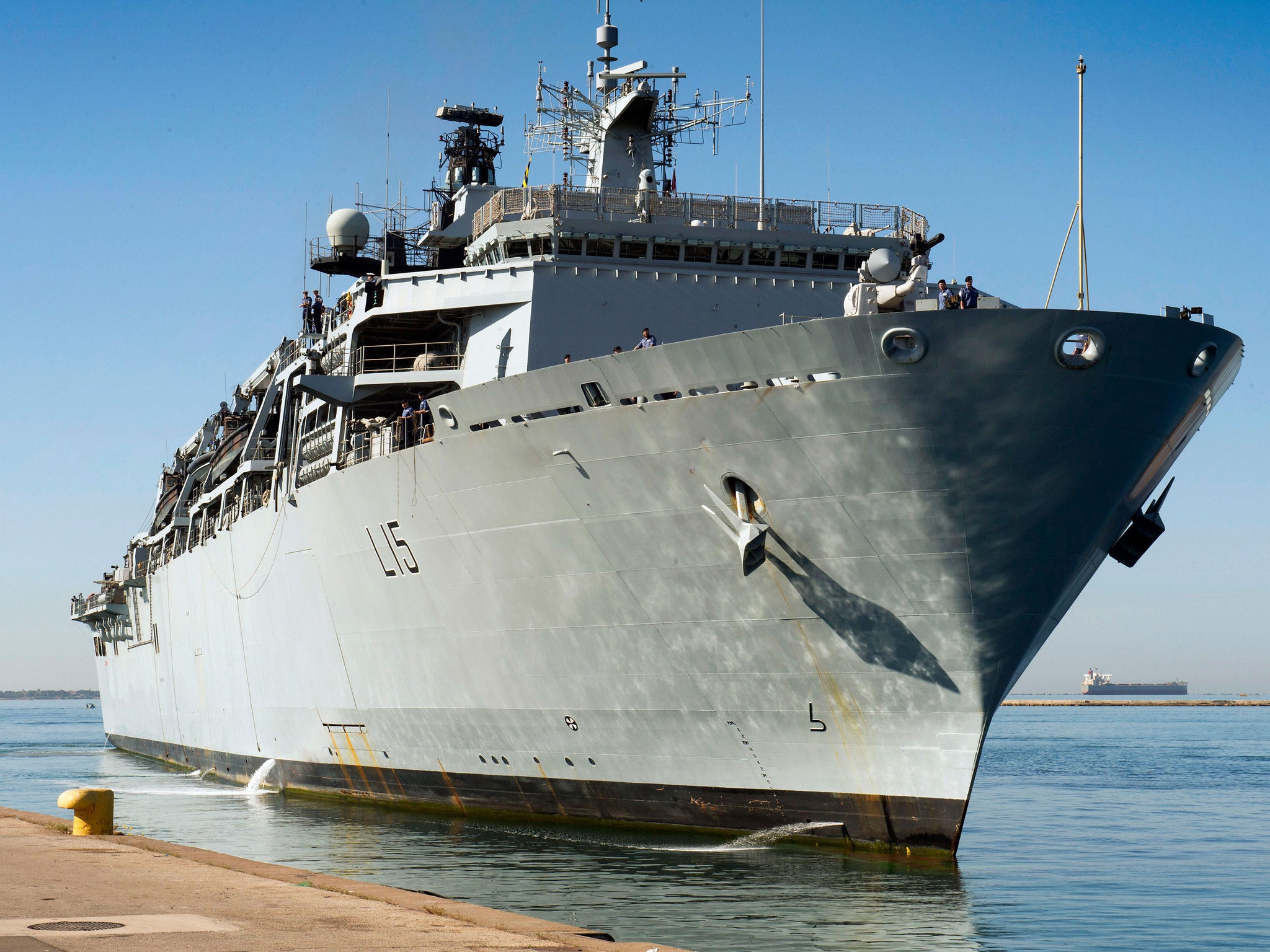Mediterranean migrant crisis: Millions of pounds of UK aid funding could be diverted to stop flow of people from Libya
Over 43,000 people have already crossed the Mediterranean this year - a fifty per cent increase on the same time last year

Millions of pounds in British aid funding could be diverted from existing projects around the world and targeted specifically at stopping the flood of migration across the Mediterranean from Libya, under plans being considered by Downing Street.
On 7 June, HMS Bulwark picked up around 500 migrants found in four boats attempting to make the often perilous voyage to Italy and Greece. More than 43,000 people have already crossed the Mediterranean this year - a fifty per cent increase on the same time last year.
But while Downing Street acknowledges that a significant number of these are Libyans fleeing fighting country, the bulk, they say, are from other African countries taking advantage of the lack of Government and migration controls in Libya to find a better life in Europe.
Government officials believe that if British aid money was diverted to countries like Niger and Eritrea - where a significant number of those people being picked up come from - overall numbers could be stemmed. They cite one scheme where the Department for International Development pays for food vouchers to subsidise the incomes of people living in refugee camps.
Speaking ahead of the G7 summit in Germany David Cameron hinted at the new approach when he said more needed to be done to deter migrants from leaving their own countries in the first place.
"We need to do more to stop these people leaving their countries in the first place," he said.
"That's why we will be talking here at the G7 about how we try and put a Libyan government together. We need to deal with the causes of this migration, not simply with its consequences."
Mr Cameron added it was also vital to get a stable Government in Libya.
"The two key things that need to happen are (the creation of) a government in Libya and breaking the connection between getting on a boat and getting settlement in Europe. We need to take on these two things," he said.
"There is an example in recent European history of a government that successfully handled this problem. When people were arriving in the Canary Islands in large numbers, the Spanish government was able to partner with the countries those people were leaving, help train their coastguards, help provide the material and resources they needed to manage the migration problems and those boats, effectively, were stopped.
"Why that isn't working at the moment is because we need a government in Libya with whom we can deal, so we can take that action."
But he added the rescue mission in the Mediterranean would continue.
"HMS Bulwark is in the Mediterranean because we want to save lives.
"Britain is a country that doesn't walk on by. We are a country with a conscience, and that's right."
Join our commenting forum
Join thought-provoking conversations, follow other Independent readers and see their replies
0Comments